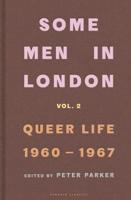Publisher's Synopsis
The Philosophy of Hume: As Contained in Extracts (1893) is a book written by David Hume, a Scottish philosopher, economist, and historian. The book contains a collection of extracts from Hume's works, including his famous Treatise of Human Nature, An Enquiry Concerning Human Understanding, and An Enquiry Concerning the Principles of Morals. The book explores Hume's philosophical ideas, including his skepticism towards metaphysical concepts such as causation, substance, and the self. Hume argues that these concepts are not grounded in empirical evidence and are therefore meaningless. He also discusses his views on knowledge, perception, and morality. The Philosophy of Hume: As Contained in Extracts (1893) is a valuable resource for students and scholars of philosophy who are interested in understanding Hume's ideas and their significance in the history of philosophy. The book provides a concise and accessible introduction to Hume's philosophy, making it an excellent starting point for anyone who wants to explore his ideas in more depth.As Contained In Extracts From The First Book And The First And Second Sections Of The Third Part Of The Second Book Of The Treatise Of Human Nature.This scarce antiquarian book is a facsimile reprint of the old original and may contain some imperfections such as library marks and notations. Because we believe this work is culturally important, we have made it available as part of our commitment for protecting, preserving, and promoting the world's literature in affordable, high quality, modern editions, that are true to their original work.










